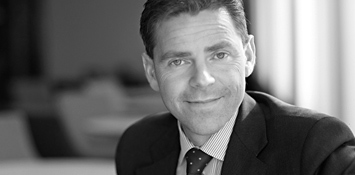
“The stronger the client, the better the service”
The FM market is maturing right across the Nordic region, affecting providers and clients. Consistently, client competence has been developing, making them better at controlling their FM operations. A clear FM strategy and strong client organisations are fundamental to effective service.
Ulf Wretskog regards himself as one of Coor’s old hands. He’s been President of Coor’s Finnish operation since August this year, but he’s got nearly ten years' experience as an operational manager of Coor’s Swedish business in his locker. Ulf is in Finland at least four days a week, but his family is back in Sweden. Nova caught up with him at Coor’s head office in Stockholm. We chat about client organisations—when they work well.
“I’ve seen a lot in my time at Coor,” says Ulf Wretskog, “generally, I think clients have matured significantly in recent years. Ten years ago, suppliers were the primary drivers of progress, but clients have clearly caught up. Now nearly all the major players take FM issues really seriously, and in a range of ways, work actively on modifying, developing and streamlining their FM organisations.”
What distinguishes a good client organisation?
After pondering this for a moment, Ulf says that actually, there are two fundamental criteria: a clear strategy and a strong client. By clear strategy, he means a clearly defined assignment from executive management. This is about having an overall idea for how your FM operation is linked to the different challenges facing your business. This might, for example, be a matter of lower costs, raising or getting a more consistent (standardised) level of quality, increased production rates, greater long-term sustainability, or maybe, a stronger brand.
“If the FM assignment is clear, then obviously, your prospects of being able to control and run FM operations correctly are improved. This applies whether you choose to run these operations in-house or with the aid of specialist services providers,” he adds.
By a strong client, Ulf means a clear FM organisation with clearly delineated responsibilities and mandates. The organisation and mandate should be clear, in terms of your own operations and towards potential services providers.
“A good FM organisation means that responsibility is centralised, for example on a Facilities Manager, Estates Manager, CFO, Administrative Manager or Purchasing Manager, and that the organisational structure is clear. This can be hard to implement, especially in strongly decentralised organisations, but there’s no doubt that FM issues run best and most effectively in this way. The stronger the client, the better the service,” notes Ulf.
Which organisational structure works best?
In principle, organisational structures can be delineated geographically or functionally. But because he’s a strong advocate of IFM* (integrated facilities management) solutions, Ulf is convinced that a geographically delineated FM organisation is best.
“All the experience indicates that it’s better and more effective to manage FM services on an integrated basis and to work on local synergies. This understanding is pushing an increasing number of large companies towards IFM solutions. But I’d like to say that it’s better to have a functionally delineated FM organisation with clear responsibilities compared to an organisation with indistinct or scattered divisions of responsibility. That’s when things get difficult, even for the organisation executing the assignment. You sacrifice substantial economies of scale and synergies, while it’s also more difficult to pursue proactive development work.”
One of the major benefits of a clear organisational structure is that it’s easier to separate the strategic issues from the tactical and operational.
“The responsibility for strategic issues should be with one clear client, then with an execution organisation responsible for delivering in accordance with the predetermined strategy. Really sharp client organisations are exacting on this point,” confirms Ulf.
Describe your dream client
In some ways, Ulf thinks that a dream client is also a nightmare client:
“The dream client satisfies all the criteria of a good client organisation. The FM strategy and organisation is crystal clear, while strategic responsibility is completely separate from the execution organisation. In such organisations, the demands on us as a provider are clearly greater, and we have to work harder to constantly develop, streamline and improve our delivery. Obviously this is really hard, but also really stimulating. Our competence and proactivity are under the greatest scrutiny in delivery to these customers. We’ve always got to demonstrate that we’re adding value for our customers, but this is also where it’s most apparent,” concludes Ulf.
* IFM, integrated facilities management, means the co-ordination and development of a number of FM services.
Want to find out more?
Just contact Ulf Wretskog.

